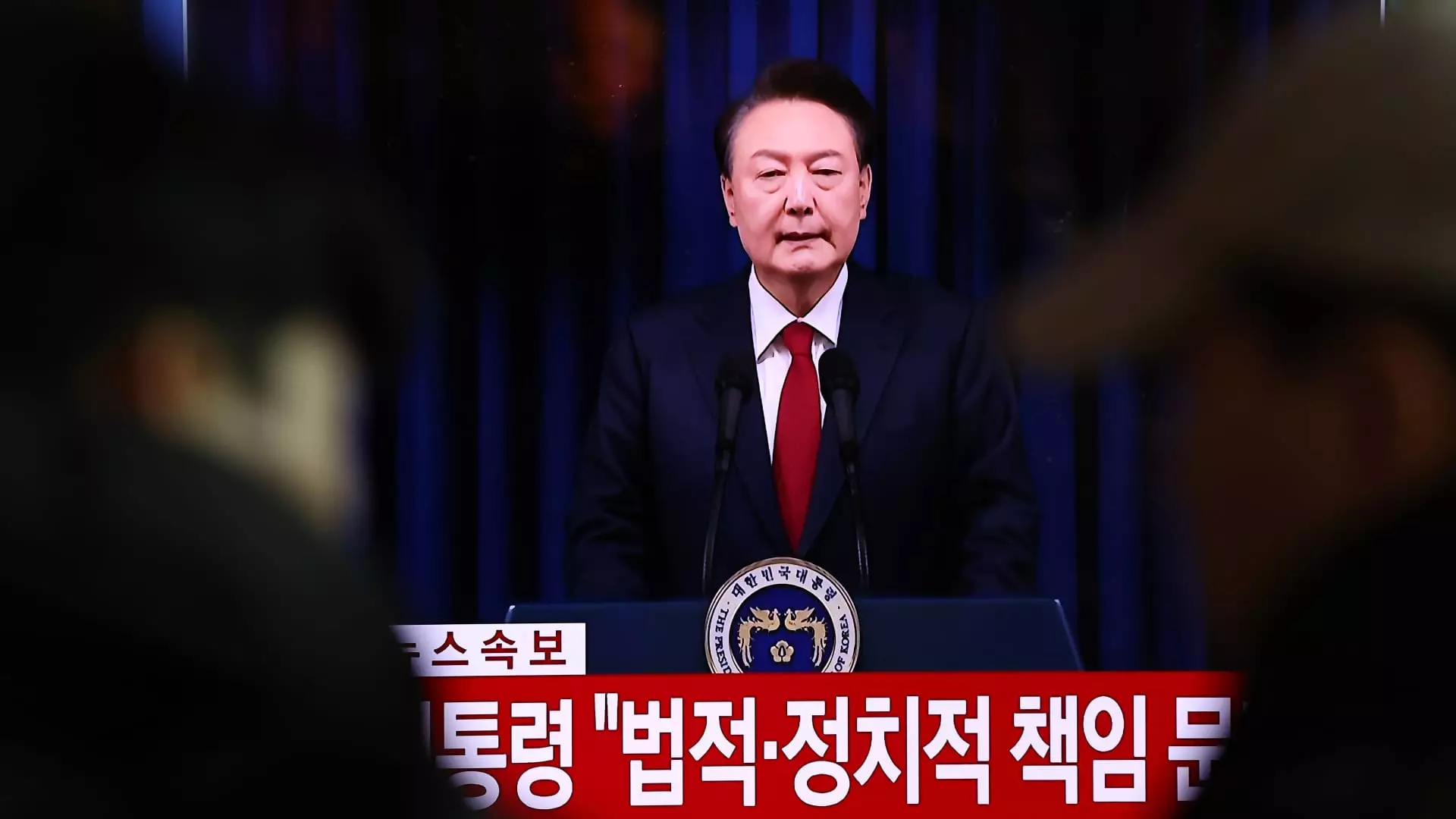On a turbulent Saturday, South Korea was shaken by the impeachment of President Yoon Suk Yeol. This political upheaval was propelled by his recent, albeit brief, imposition of martial law—a decision that echoed troubling historical precedents in a nation still grappling with its authoritarian past. This moment not only raises questions regarding Yoon’s judgment and leadership but also highlights deep fractures within South Korean politics. Following a previous impeachment motion that failed in early December, the tides rapidly turned against Yoon, indicating a volatile political landscape that propels national discourse.
The martial law declared on December 3 was a major flashpoint in Yoon’s presidency, reminiscent of tactics used during South Korea’s military dictatorship decades ago. Yoon justified his actions by stating that he aimed to “protect the constitutional order based on freedom,” which he felt was under threat from pro-North Korean groups. However, this rationale was met with skepticism by a populace wary of authoritarianism. The quick reversal of military powers merely six hours later raised alarms about potential overreach and set off a flurry of protests. Such actions appear to signal not only a crisis of governance but also reflect Yoon’s struggle for legitimacy amidst escalating dissent.
What made the impeachment possible were growing fissures within Yoon’s own People Power Party (PPP). The withdrawal of PPP allies in an earlier legislative vote revealed the fragility of Yoon’s hold on power. Han Dong-hoon, the PPP leader, shifted course by endorsing the impeachment move, thus rallying opposition lawmakers for a unified front against a president who many believed had lost the moral authority to govern. These developments underscore a critical dissolution of unity within the ruling party, which could have long-lasting implications for future governance and political stability in South Korea.
The public response to Yoon’s handling of the martial law situation has been a drastic fall in approval ratings, plunging to an alarming 17.3%. This disapproval is further compounded by ongoing scandals involving Yoon’s wife, Kim Keon Hee, leaving citizens feeling disillusioned with their leadership. Mass protest actions demonstrated a collective discontent, illustrating a public unwilling to tolerate what they perceive as the encroachment of authoritarianism. Faced with increasing scrutiny and calls for accountability, Yoon’s defiance—exemplified by his insistence on “fighting to the end”—indicates a deep-rooted resistance to yielding power even in the face of mounting adversity.
While South Korea’s political landscape faces tremors, its economy, characterized by robust sectors such as technology and AI, remains a focal point of interest domestically and internationally. Investors are cautious as political uncertainty often breeds volatility, leading to concerns over South Korea’s democratic stability affecting market dynamics. However, experts like John Woods from Lombard Odier suggest that observers are beginning to “look through this crisis” to focus on enduring structural factors such as local earnings and the integral role of technology. With the International Monetary Fund projecting a 2.5% growth for the South Korean economy this year, the interplay between political turmoil and economic performance remains a critical narrative as the situation unfolds.
As South Korea braces itself for an impending presidential election that must occur within 60 days, the implications of Yoon’s impeachment extend beyond mere political theater. The erosion of public trust, division within the ruling party, and the looming possibility of preserving democratic integrity all hang in the balance. Whether the nation can navigate this turbulent phase and restore faith in governance will undoubtedly shape not only its political future but also its economic prospects in an increasingly competitive global landscape. In a time marked by volatility, the nation stands at a fork in the road, contemplating how it can safeguard its democratic values while tending to the economic needs of its citizens.


Leave a Reply